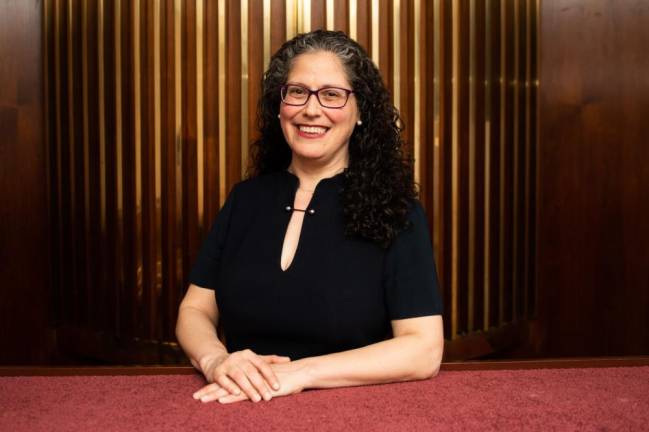OTTY Honoree 2020 Rabbi Sarah Reines: 'Every Day Has Meaning'
She forged a unique career path built on creating – and serving – communities wherever she goes

Rabbi Sarah Reines learned what it meant to be a part of a community from a very young age.
When she was born, the youngest of five children, her family moved from Manhattan to Great Neck, Long Island. In the Great Neck area, there were plenty of synagogues for the family to attend; instead, they continued to make the trip to the Upper East Side to attend services at Temple Emmanu-El, where they had long been members. Because of this, Reines felt like there was always a place for her on the east side growing up.
“It taught me at a young age that a community can be a home to you even if it's not part of your nearby surroundings,” said Reines.
She’s found a similar sense of community at another Upper East Side synagogue — Temple Shaaray Tefila — where she joined the clergy team in July 2018 after being a longtime congregant with her husband and two daughters.
Reines had first considered becoming a rabbi during college at Brandeis University in Massachusetts — but she didn’t feel quite ready. She felt as though she didn’t have “the God stuff” worked out yet. (It was years later when she realized that she still didn’t have it figured out, but maybe that was just fine.) So instead of jumping into seminary, she got a masters degree in Jewish communal service, which Reines described as something of a pre-professional degree. The program exposed her to a diversity of people she had not yet experienced.
“My world at that point had been in reformed Jewish New York,” said Reines. “[In my program] I met Jews from all over the world. It was very small — 17 of us from six or seven counties, from secular to modern orthodox.”
It was a formative experience, and afterward she felt ready for rabbinical school.
Reines spent her first 14 years out of seminary at Central Synagogue of New York — and then she was inspired to do things on her own. Essentially, Reines freelanced: performing bat and bar mitzvahs, weddings, funerals and convening study groups. But Reines calls it being a “rabbi without walls.”
“People's time is limited, but their interests are high. People need convenience,” she said. “I think that we talk about it sometimes in a negative way. But I really appreciate that there were all these families who were making an effort.”
The independence allowed her to spend more time with her daughters, work as the co-president of the Women’s Rabbinic Network, and engage more in activism following the 2016 election.
“Taking a step outside the walls allowed me a little freedom to do things that serve the community and other ways,” she said.
After about 10 years outside the walls, she stepped back into a congregation when a position opened up at Shaaray Tefila.
“I knew the community. I knew the people. I knew the work,” said Reines. “I just love congregational work. Two years in, she just extended her contract for a third year.
She and Senior Rabbi Joel Mosbacher have struck up a partnership in guiding their community through a world that Reines finds much too uncertain.
“I'm feeling more vulnerable than I ever have in my life as a Jew in this city and in this nation,” said Reines of the clear rise in anti-Semitism in recent years, adding that the fear and anger has also brought people in her community closer together. And in her own work, she finds hope for the future.
“Every day has meaning,” said Reines. “I leave feeling enriched and having enriched, and that I think is a huge blessing.”
“I just love congregational work."